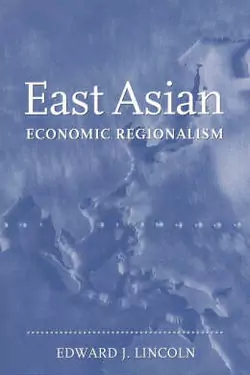
East Asian Economic Regionalism

- Book
- Foreign policy analyses written by CFR fellows and published by the trade presses, academic presses, or the Council on Foreign Relations Press.
More on:
Something new is happening across East Asia. A part of the world long noted for its lack of internal economic links is discussing regional cooperation on trade, investment, and exchange rates. Why has East Asia suddenly shifted from a global approach to economic issues to discussing a regional bloc? How fast and how far will the new regionalism progress? Will East Asia become a counterpart to the European Union, or something far less? What is the probable impact on American economic and strategic interests? Is East Asian regionalism something that the U.S. government should encourage or discourage? Edward J. Lincoln takes up these critical questions in this timely and important book and explores what is happening to regional trade and investment flows as he explains what sort of regional arrangements would be the most attractive for the United States, and for the world economy.
An exclusively Asian form of regionalism could run counter to American economic interests, Lincoln says; the U.S. government has reacted negatively to similar proposals in the past. Instead, because trade and investment links between the countries of the Asia-Pacific region and the United States remain strong, Lincoln argues that the Asia Pacific Economic Cooperation forum remains the most appropriate institution for pursuing regional trade and investment issues.
More on:
 Online Store
Online Store
